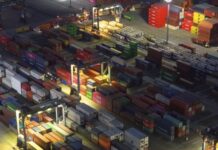Trump’s Trade War and the New Age of Business, Politics, and Information Control
In today’s world, business, politics, and information control are inseparable forces. No event made this clearer than Donald Trump’s trade war against China — and by extension, against the global economic system itself.
When Trump launched tariffs on billions of dollars’ worth of Chinese goods, he wasn’t just targeting unfair trade practices.
He was sending a clear message: business is political, and politics shapes business.
Just like a single government policy can build or crash a company overnight, Trump’s tariffs showed how quickly international business structures could be weaponized.
China retaliated, global markets shook, supply chains unraveled, and companies were forced to rethink their manufacturing bases.
This wasn’t simply economics — it was geopolitical chess at the highest level.
The Broader Lesson: No Business is Isolated from Politics
Many entrepreneurs and corporate giants like to claim that they are “neutral” — purely focused on commerce, not politics. But history and recent events say otherwise.
From Facebook’s involvement in political censorship to social media’s role in toppling governments during the Arab Spring, it is now clear: The platforms that carry information, the businesses that move goods, and the politicians that make policies are all interconnected.
Mark Zuckerberg’s Facebook, for example, became a key tool not just for connecting friends, but for running political campaigns, organizing protests, and — some claim — silencing dissent when pressured by governments.
Similarly, Trump’s trade war was not just about economic numbers — it was about control, sovereignty, and power.
The economy is no longer just an economic issue. It is a national security issue.
How Trump’s Tariff War Changed the Global Game
Higher consumer prices hit American households.
Supply chains shifted from China to Vietnam, Mexico, and India.
Global trade slowed, shaking economies from Europe to Africa.
Technology battles intensified, from Huawei bans to semiconductor fights.
Nationalism rose, with countries seeking to “secure” key industries.
Trump’s aggressive policies forced governments and businesses worldwide to recognize a new reality:
Economic power is political power.
Whether it’s a farmer in Iowa losing markets, a Nigerian importer feeling the impact of U.S.-China tariffs, or a Biafran activist finding their Facebook posts suppressed, the message is the same:
In the 21st century, you cannot separate business, information, and politics.
Moving Forward: Adapt or Be Left Behind
For businesses, activists, and even governments, understanding the intersection of commerce and political power is now essential for survival.
If Facebook can influence uprisings, if one U.S. policy can shatter global trade routes, if a single tweet can crash a company’s stock — then we are living in a world where influence is the new currency.
As Trump’s trade war showed, it’s not enough to make good products or offer great services.
You must understand the political winds, align your strategies, and adapt quickly — or risk being swept aside.
Stay tuned with Danchima Media for deep insights into how business, politics, and information warfare are shaping the future.
- Gold Explorer Joins Bitcoin Treasury BandwagonSpread the love The early-stage gold explorer’s Bitcoin reserve strategy has become a familiar playbook among… Read more: Gold Explorer Joins Bitcoin Treasury Bandwagon
- Long-dead Satellite Sparks Astronomical MysteryAstronomers in Australia detected a powerful radio signal from the old satellite Relay 2, launched in 1964.
- 🇦🇹 Austria Deports Syrian Criminal in First Such Move Since Assad’s Fall — Europe Divided on Refugee ReturnsSpread the love Austria has deported a 32-year-old Syrian man with a criminal conviction back to… Read more: 🇦🇹 Austria Deports Syrian Criminal in First Such Move Since Assad’s Fall — Europe Divided on Refugee Returns<br>
- Beyond Binance: CZ Reflects on Power, Legacy, and the Future of FinanceSpread the love Changpeng Zhao, or “CZ”, isn’t just the man behind Binance — he’s… Read more: Beyond Binance: CZ Reflects on Power, Legacy, and the Future of Finance
- Crypto Needs Private, Decentralized ID Verification — Now More Than EverSpread the love A major data leak involving over 70,000 Coinbase users has reignited urgent concerns… Read more: Crypto Needs Private, Decentralized ID Verification — Now More Than Ever













